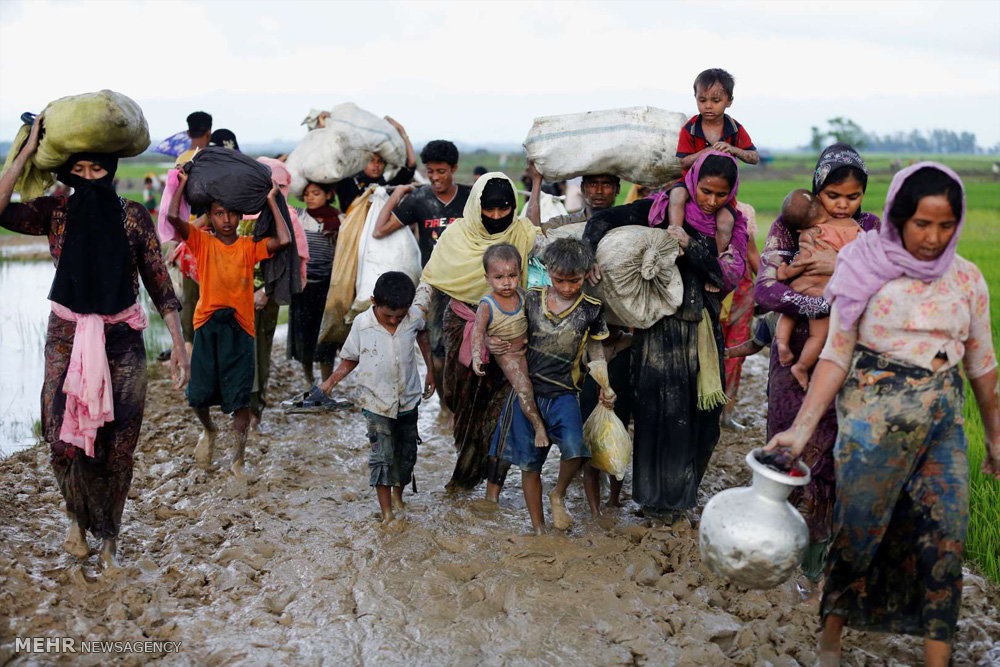Alwaght- The crisis of Rohingya Muslim refugees fleeing persecution in Myanmarese Buddhist regime has reached “unprecedented proportions” in recent months, the EU commissioner for humanitarian aid said on Thursday.
In a statement released on Thursday, the European Commission said it released €40 million ($47 million) in humanitarian aid for Rohingyas in Bangladesh and Myanmar.
“Our emergency aid will deliver essential supplies such as food, clean water and healthcare as well as support for the monsoon season," said Commissioner for Humanitarian Aid and Crisis Management Christos Stylianides.
The Rohingya refugee camps are extremely vulnerable to the flash flooding and mud landslides triggered by the ongoing monsoon season, which typically lasts until October and could put 200,000 lives at risk.
The statement said €29 million ($34 million) will be used to deliver food, nutritional support, clean water and sanitation facilities, access to health care services, as well as increased protection for the most vulnerable groups among refugees and host communities in the Cox's Bazar, Bangladesh.
Meanwhile The United Nations said on Thursday it had struck an outline deal with Myanmar aimed at eventually allowing hundreds of thousands of Rohingya Muslims sheltering in Bangladesh to return safely and by choice.
“Since the conditions are not conducive for voluntary return yet, the MoU (memorandum of understanding) is the first and necessary step to support the government’s efforts to change that situation,” the UN High Commissioner for Refugees (UNHCR) said in a statement.
In the Bangladeshi capital Dhaka, senior UNHCR official George William Okoth-Obbo told reporters after a five-day visit to Rohingya refugee camps along the border that conditions in Myanmar did not yet allow a “safe and sustainable return”.
Since Aug. 25, 2017, more than 750,000 refugees, mostly children, and women have fled Myanmar and crossed into Bangladesh after Myanmar forces launched a crackdown on the minority Muslim community, according to Amnesty International.
At least 9,400 Rohingya were killed in Rakhine from Aug. 25 to Sept. 24 last year, according to Doctors Without Borders.
In a report published recently, the humanitarian group said the deaths of 71.7 percent or 6,700 Rohingya were caused by violence. They include 730 children below the age of 5.
The Rohingya, described by the UN as the world's most persecuted people, have faced heightened fears of attack since dozens were killed in communal violence in 2012.



























